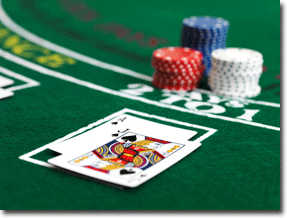The Advantage of Showing Cards in Poker
Sounds crazy but it can work in your favor
By Mike Caro
Look, I’m not a tournament player. In fact I’ve just begun my serious quest for World Series of Poker bracelets this year. They tell me it’s too late, because I’m 62 and the fields of opponents now number in the thousands. They say I should have played years ago when there were tournaments with fewer than 100 players, sometimes fewer than 30. Then, maybe, I would have acquired enough bracelets to seem like a “credible tournament pro.”
Maybe. I played half the events this year and managed to get into the money four times, including one final table. Since I don’t intend to run myself ragged chasing the tournament trail, playing 300 events a year as some pros do in quest of titles, I’m at a disadvantage. Fine. Maybe I’ll just revert to simply declaring that I’m the best. Not everyone will believe me, but I’ll save a lot of energy.
Supplying information
Here’s the point. I played the way I always do, giggling, engaging my opponents in conversation, bonding with the table, and sometimes showing cards when nobody called. Many experts preach that you should never show cards if you don’t have to, that the practice only supplies information about how you play to alert opponents.
Well, I think showing cards appropriately accounts for a measurable share of my profit. Let’s reason this out together. Suppose the rules were that you couldn’t show cards you folded after you won a pot. OK, then you wouldn’t have the option of either hurting or helping yourself by exposing cards.
Now suppose the rule was that your opponents could look at your cards after you bet and took the pot uncontested. They’d gain information not afforded by poker tradition. Would that be an advantage to them? Yes! But, instead, suppose the option was that you could optionally show your hand. We would have added a rule—an option—bringing our theorized game of poker into line with the way it actually is today. This option cannot possibly hurt you if you exercise it prudently. If using that choice is always detrimental, it should never be used.
But voluntarily exposing cards isn’t always detrimental. On the recent ESPN Pay-Per-View WSOP 2006 final-table broadcast, Phil Gordon (an expert I agree with on almost everything else) kept commenting that the eventual winner Jamie Gold and others were making a key mistake by exposing cards after winning a hand. I disagreed so strongly that I sent several e-mails to him and his colleague Ali Nejad. Phil had said that when you show cards, it gives information to opponents that they can use against you in the future. I pointed out that when I show cards, it actually gives me information that I can use in the future.
Manipulating the audience
What did I mean by that? If things are done correctly, it’s the broadcaster (or the advertiser) that manipulates the audience, not the other way around. If this were not the case, we’d be standing upside down thousands of years of evolved promotion and psychology. When you broadcast cards selectively, you’re sending out a planned message to your audience, your opponents. You’re not showing them how you play. Ideally, you’re instilling in them a false (or sometimes true) impression of how you play—and you’ve gained information about what they probably think.
For instance, I’ll sometimes show opponents that they made a correct laydown. Some pros believe that this just makes your opponents feel good. That’s fine with me. I like my opponents feeling comfortable, as long as they’re confused. Occasionally—when I can do it in a friendly way—I’ll even show a bluff. After doing this, I will try to gauge an opponent’s reaction. When I know what opponents have seen, I have a better command over them than if they had seen nothing at all. My style of poker is intensely psychological and I use all weapons at my disposal. Showing cards sometimes is one of them.
Another time I choose to show cards, which is generally legal in non-tournament play when you’re heads up against a single opponent, is after an opponent has bet. I’ll lay my cards face-up on the table and ask, “What would you do if you held this hand.” It’s much easier to read my opponents if I do that, because instead of them wondering whether they want me to call, they know for sure whether they hold the best or worst hand and that makes tells more reliable.
If you show all your hands, that helps youe opponents; and if you show some hands indiscriminately without understanding psychological poker warfare, that helps your opponents. But if you have the right people skills, showing cards occasionally gives you the edge by eliciting information about what your opponents think they know. It works for me.
Mike Caro, “the Mad Genius of Poker” is today’s foremost authority on poker strategy, psychology, and statistics. He is the founder of Mike Caro University of Poker, with its online campus at Poker1.com. You often can play against him personally at DoylesRoom.com.



